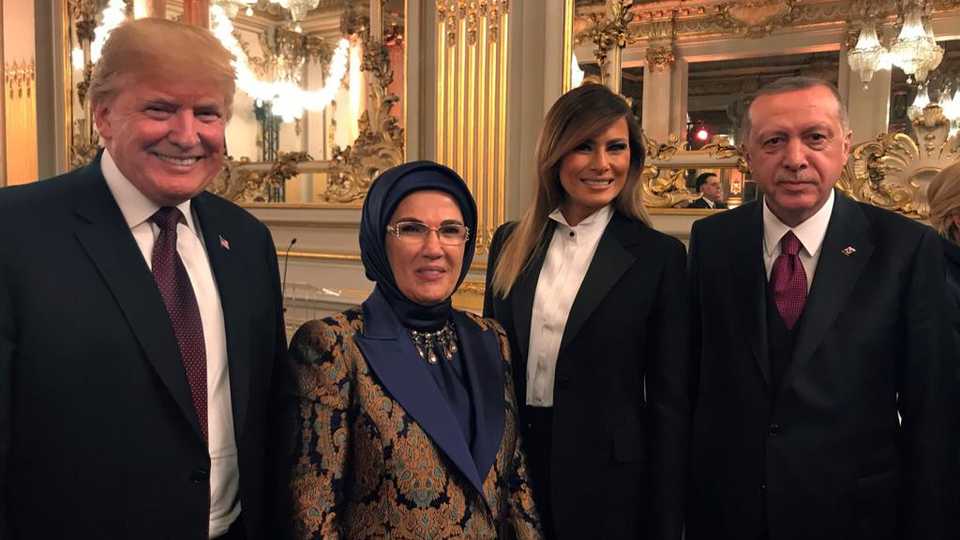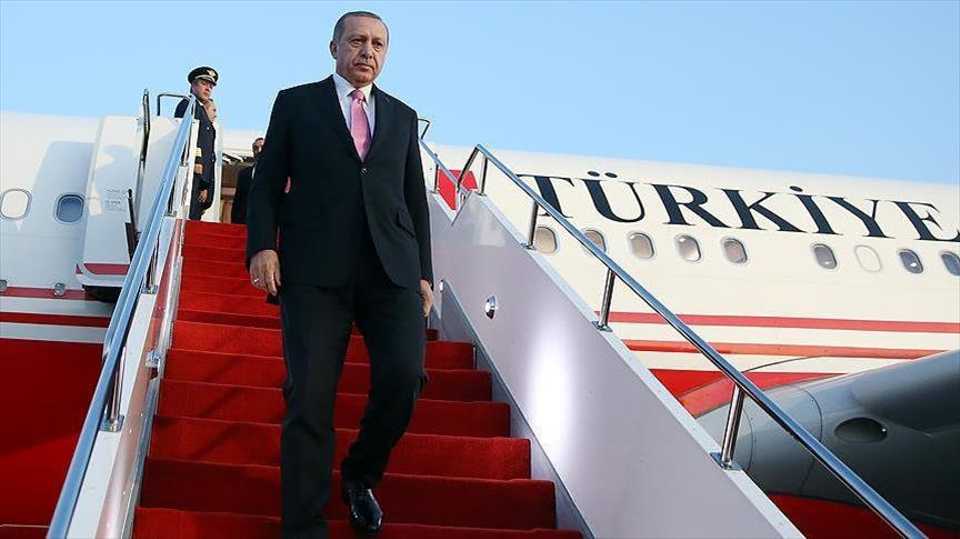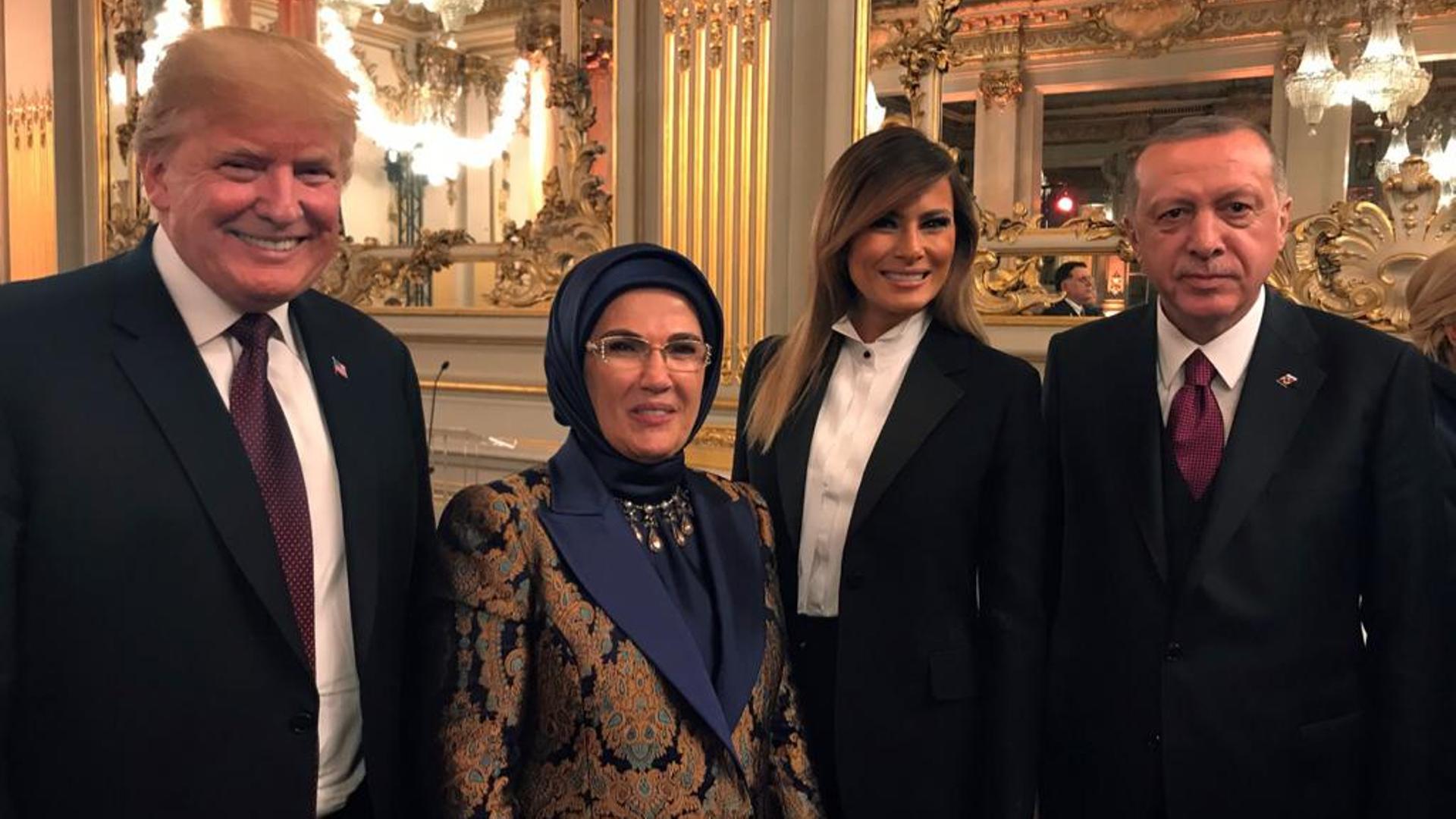
US President Donald Trump and his Turkish counterpart Recep Tayyip Erdogan discussed how to respond to the killing last month of Saudi dissident Jamal Khashoggi, a White House official said on Sunday.
The conversation took place during a Saturday dinner with heads of state gathered in Paris to mark the World War One Armistice centenary.
Khashoggi, a critic of ruling Saudi Crown Prince Mohammed bin Salman, was murdered at the kingdom’s Istanbul consulate by a team sent from Riyadh. Saudi authorities have acknowledged that the killing was premeditated, but his body has not been found.
Erdogan revealed on Saturday that audio recordings of the killing had been given to the US, French, German and British governments, adding that the operation had been ordered at the “highest levels” of the Saudi government.

Trump expects to form a “much stronger opinion” by next week on Khashoggi’s killing and Washington’s response, he said on November 7 – adding that he was working with Congress, Turkey and Saudi Arabia to establish who bore responsibility.
Erdogan, who was accompanied by first lady Emine Erdogan and Foreign Minister Mevlut Cavusoglu as he arrived to attend Sunday’s Armistice Day commemorations in Paris, marking 100 years since the end of World War I, alongside nearly 100 other world leaders, is also expected to hold a bilateral meeting with Russia’s President Vladimir Putin.
WWI result of ‘colonialism, expansionism’
Speaking on Saturday, Erdogan said World War I was a result of “colonialism, expansionism and aggression”, and that the most valuable lesson is that creating lasting peace is a “very serious challenge.”
In an article in French daily newspaper Le Figaro, the Turkish president said the mistakes that were made during the creation of a new order after the war “paved the way to World War II, which caused an unprecedented amount of pain.”
“As we mark the centennial of the end of World War I, it is not possible to claim that that conflict is nothing but history. The domestic tensions, growing terror threat and deepening instability in Turkey’s southern neighbours, Iraq and Syria, in recent years, along with the systematic dispossession and displacement that has been going on in Palestine for decades, are clear indicators of that situation,” he wrote.
Erdogan wrote the World War I resulted in the emergence of “certain problematic political entities” within borders that “the Great Powers of the time drew on a map of the region with pens and rulers.”
“The failure of those problematic political entities to build strong bonds with the societies, over which they ruled, led to the association of the Middle East and North Africa with authoritarian regimes, military coups and minority rule throughout the twentieth century,” he wrote.
TRT World spoke with historian John McHugo, author of ‘A Concise History of the Arabs and Syria’, who shared some insights related to the First World War.
EU a ‘peace project’
Invoking the situation created by 1916 Sykes-Picot agreement, which laid the ground for the borders of the new Middle East following the fall of the Ottoman Empire, Erdogan said, “the objection we raise against new efforts akin to the Sykes-Picot agreement in our region and our efforts to fight against terrorist organisations such as ISIS, PKK and FETO, reflect our respect for our neighbors and represent a prerequisite of the security of the European family of nations – of which Turkey is part.”
“In this regard, Turkey will continue to work towards its goal of becoming a full member of the European Union, which is the single most important peace project in the continent’s history,” he wrote.
“And, at the same time, to contribute to global peace and stability by supporting representative, democratic and pro-freedom governments in the Middle East.”
Descendant of WWI martyr
Erdogan said the war – which some called “the war to end all wars” – was a matter of life and death for Turkey.
“In this regard, I respectfully salute the memory of our ancestors – including my grandfather, Kemal, son of Mustapha – who defeated some of the most modern and powerful armies of their time in many places… to gift us the territories that we call our homeland today.”
“In this regard, I take pride in the fact that I, the descendant of a World War I martyr, am representing my country at this historic event,” he said.
TRT World‘s Melinda Nucifora reports.
Tarek Cherkaoui, manager of the TRT World research centre spoke on the impact WWI had on the Middle East.










Discussion about this post